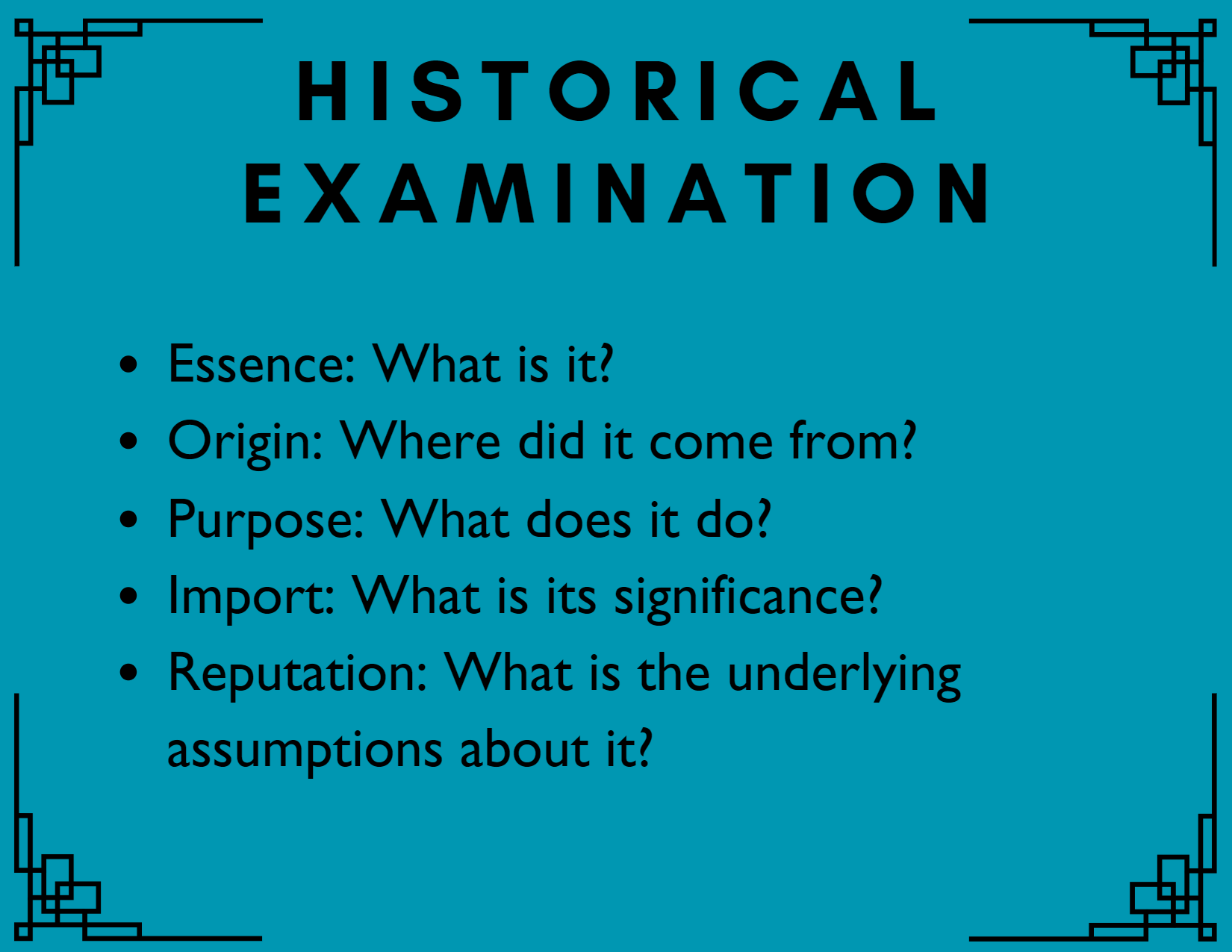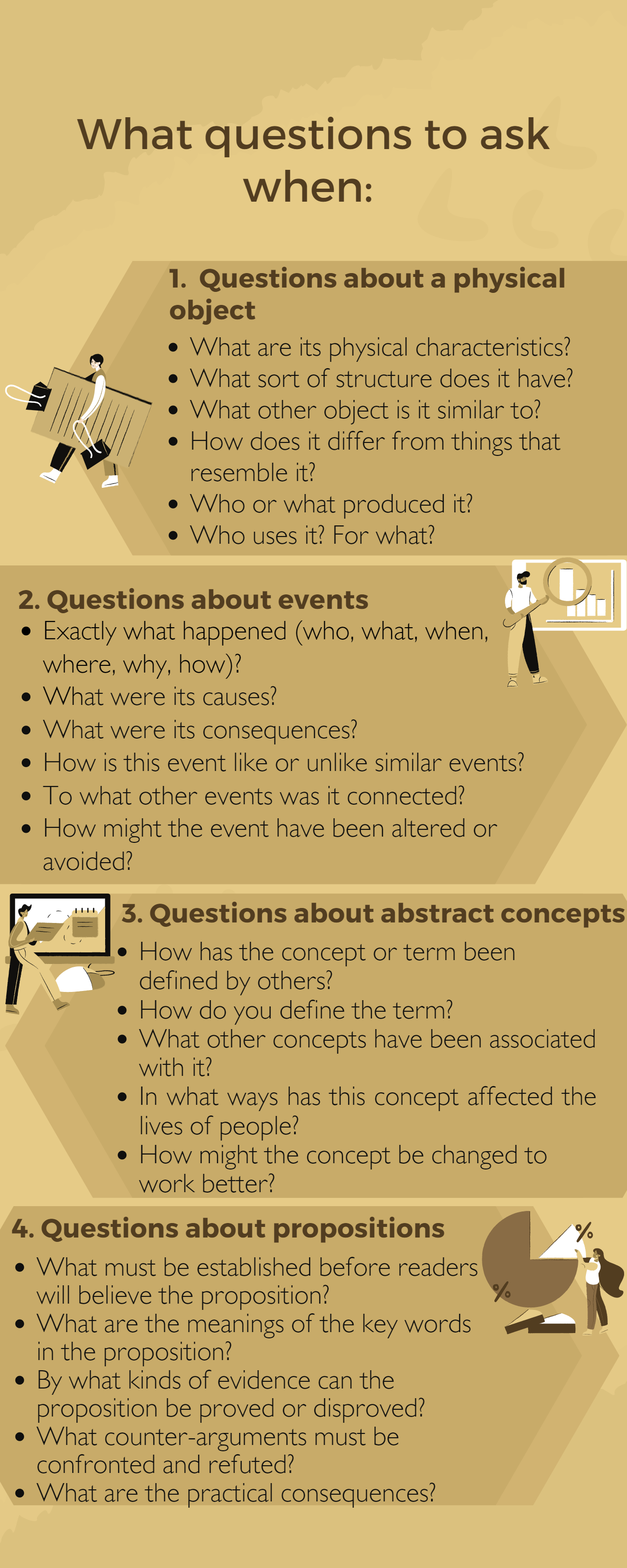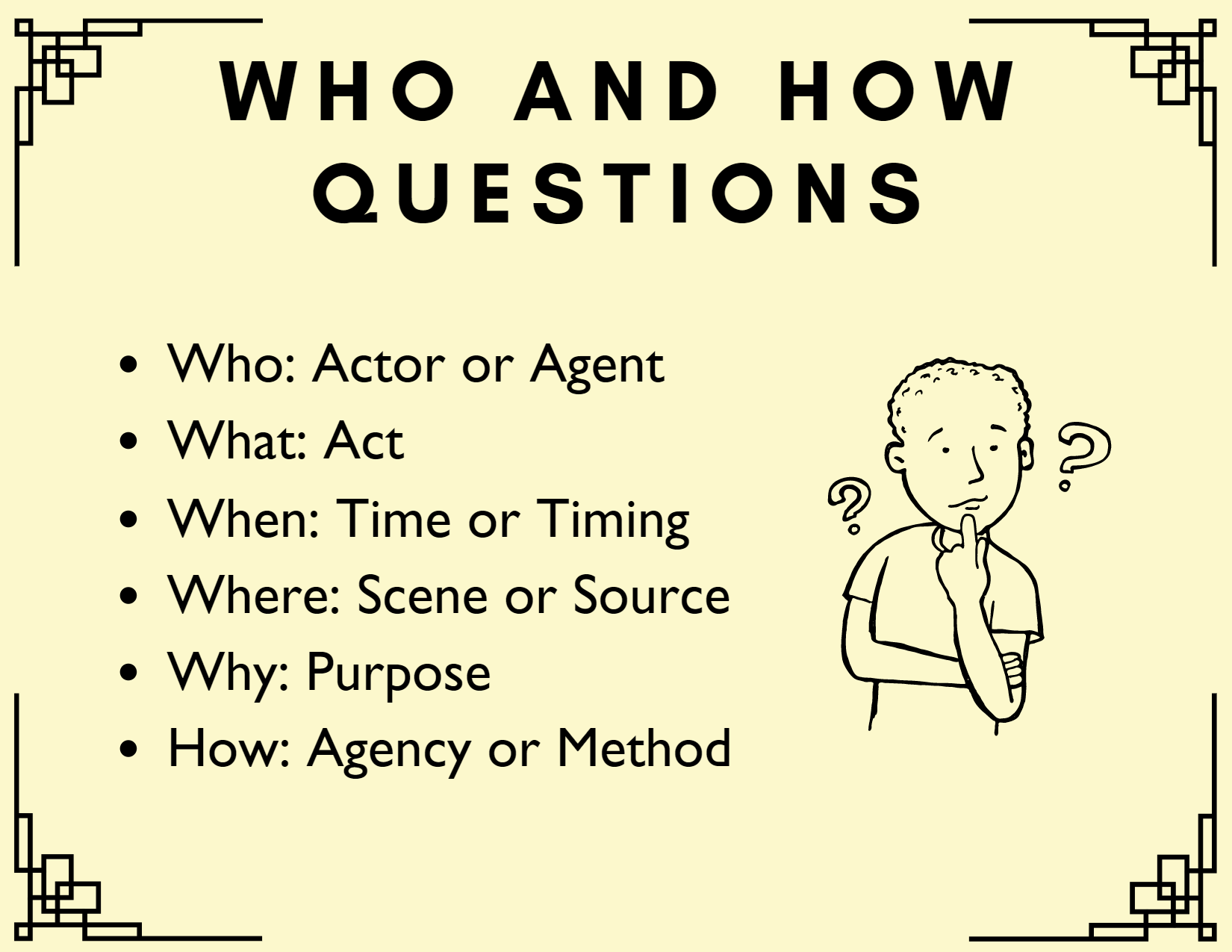Asking questions to stimulate curiosity and creativity has proven helpful for all kinds of endeavours, whether problem-solving, product development, inventing or communication. A written list of mind-stimulating questions is useful because it reminds us of approaches and possibilities that we otherwise would not have in mind. Yes, it is sometimes possible to be creative in a thorough and even orderly way.
5 W and H Questions
These are the six key questions that can be used for creative thinking, these questions stimulate thinking about the idea in question and allow approaches to it from various angles.
Who? (Actor or Agent) Who is involved? What are the people's aspects of the problem? Who did it, and will do it? Who uses it, wants it? Who will benefit, will be injured, will be included and will be excluded?
What? (Act) What should happen? What is it? What was done, ought to be done and was not done? What will be done if X happens? What went or could go wrong? What resulted in success?
When? (Time or Timing) When will, did, and should this occur or be performed? Can it be hurried or delayed? Is a sooner or later time preferable? When should the time be if X happens?
Where? (Scene or Source) Where did, will, and should this occur or be performed? Where else is a possibility? Where else did the same thing happen, should the same thing happen? Are other places affected, endangered, protected, or aided by this location? What effect of this location have on actors, and actions?
Why? (Purpose) Why was or is this done, avoided, or permitted? Why should it be done, avoided, or permitted? Why did or should the actor do it? Different for another actor, act, time, place? Why that particular action, rule, idea, solution, problem, disaster and not another? Why that actor, time, location, and not another?
How? (Agency or Method) How was it, could it be, should it be done, prevented, destroyed, made, improved, altered? How can it be described, and understood? How did the beginning lead to the conclusion?
Historical Examination
These questions are especially useful for generating ideas for improving something (the evolutionary approach), but they also help to break thinking out of the evolutionary mode and put it into the revolutionary mode by returning the thinker to the origin and purpose of the idea or solution. By returning to the roots of the problem, a new vision can be created.

Essence: What is it? object, concept? What is it made of? What is its real, elementary nature? What are its parts? What is it like, unlike? (Similes and metaphors help in understanding abstractions). What is it related to? What are its various kinds, facets, and shades? What is it a part of? Which part of it is unusual or outstanding? In what forms does it appear? Is it typical or atypical of its kind? What is it not? What is it opposed to? How is it different? What makes it different?
Origin: Where did it come from? How was it made or conceived or developed? What caused it? If an idea, how did it arise? Are its origins meaningful now? What makes it spread or multiply or gain adherents? What was the reason behind it? Is the reason still valid or useful? Why? Why not? Is it still needed? What influences it? Does it change? Can it, should it be changed, strengthened, or eliminated? What could have prevented, delayed, or encouraged it?
Purpose: What does it do? How does it work? What is its purpose? Is the purpose fulfilled? Better than its predecessor? Can it, or should it be improved? Is it helpful or harmful in intent? What are its implications; what does it lead to? Does it have obvious or hidden consequences? Does it have more than one purpose? What are its immediate effects and its long-term effects? Is its actual function the same as the original purpose intended by its originator? Can it be put to other uses?
Import: What is its overall significance? What is its significance to man, environment, civilization, happiness, virtue, safety, comfort, etc.? How is it important? Is it a key element in life, civilization, local area, or one man's existence? Is it necessary? Is it desirable?
Reputation: What do you think about it? What are your underlying assumptions? What do others think about it? Do you find consensus or division? Is it good, bad, helpful, harmful in fact or in the opinion of others? Can you resolve any differences between truth and opinion, intent, and actuality, and pro and con members? What weaknesses are commonly identified? Are there obvious areas of desired change or improvement or elimination?
What Questions To Ask When

Note: Any complex topic will require you to begin with one kind of questioning and then move to another.
